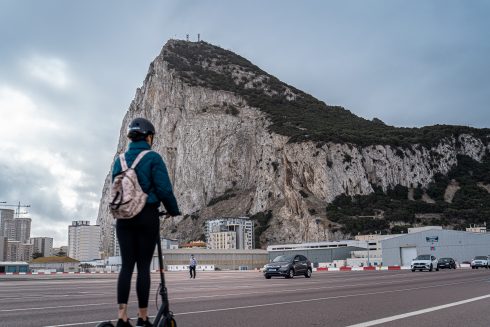AS Chief Minister Fabian Picardo jets off to Brussels once more to wrangle a post-Brexit treaty on Gibraltar’s border with Spain, both sides’ fears of coming off worse illustrates the challenges that still lie ahead.
Details remain scant on the outlines of what’s been described as the ‘general political lines’ of an agreement.
But amid an information blackout, Brits fret they may effectively surrender control of Gibraltar’s border, while Spaniards fear a deal that locks in the Rock’s tax haven status.
Local mayors worry that Gibraltar will effectively ‘colonise’ the Campo as the region becomes increasingly dependent on it economically.
READ MORE: Spain and the UK agree ‘general political lines’ on post-Brexit deal over Gibraltar
Chief Minister Fabian Picardo has been adamant that nothing within the deal will impinge upon Gibraltar’s sovereignty.
Yet the Spanish Foreign Minister, Jose Manuel Albares, has let slip that the negotiators have agreed ‘joint use’ of Gibraltar’s airport – something that was a red line for previous governments.
It’s thought that such a compromise will eliminate the hard border between Spain and Gibraltar in exchange for relocating Spanish border checks to the airport.
A parliamentary select committee has already warned that such a move could render British sovereignty over Gibraltar ‘in name only’.
Picardo clarified that ‘joint use’ meant different things for English and Spanish speakers, and Albares has already walked the phrase back.
“What we’re talking about is creating an area of fluid movement for people with Schengen between Gibraltar and Schengen as a common immigration space, a common travel area,” the Chief Minister said.
However the biggest concerns for the Spanish side extend far beyond the use of the airport.
The Campo de Gibraltar is increasingly dependent on its neighbour for its economic livelihood, with around 15,000 people crossing into Gibraltar from Spain each day.
The Popular Party (PP) has been sceptical about the likelihood of reaching a deal palatable for Spain, adding: “An agreement, yes; any agreement, no.”
The right-wing party likened talk of a ‘zone of shared prosperity’ between Gibraltar and the Campo de Gibraltar to a Miss World contestant wishing for ‘world peace’.

The key issues which Spanish observers argue have not been addressed include tobacco smuggling, pensions, and denting Gibraltar’s status as a tax haven.
Junta minister Antonio Sanz Antonio Sanz called the income inequality between the two jurisdictions ‘scandalous’ and demanded a special tax status for the Campo to allow it to compete.
“The deal has to economically and socially boost the Campo de Gibraltar and reduce the social, economic and fiscal gap with Gibraltar,” he said after a meeting with Albares and Campo mayors.
But when the gap to be reduced starts at the €16,000 GDP per capita in the Campo and ends at €76,000 for Gibraltar, even meeting half way is going to a pill too jagged to swallow for Picardo and his government.
Underlining the challenges that still remain for negotiators, Sanz warned it is ‘impossible’ to open the border to the free movement of goods and people as planned while Gibraltar ‘has a corporate tax rate of 10% and Spain has 25%’.
Furthermore, removing the routine checks on vehicles crossing the border will effectively legalise the large-scale smuggling that preys on the differing VAT regimes, according to the PP.
Picardo clarified that while VAT would still not be charged, Gibraltar might introduce a ‘homegrown transaction tax’ to align it with European practices.
“It does mean that we will handle duties in a different way which would be closer to European rates in order that you have that fluidity,” he said in an interview with GBC News.

Meanwhile, British MPs heard from a Westminster select committee that UK Foreign Minister David Cameron and Picardo are preparing to cave in to a deal that threatens a ‘serious diminution of UK sovereignty’.
Visitors arriving by plane currently land on British soil, and only encounter Spanish officials at the border with Spain on the ground.
But proposals to move Schengen controls into the airport itself have raised concerns that arriving Brits and Gibraltarians may be forced to undergo EU biometric registration without setting foot on Spanish soil.
This could hand over ‘control’ of the Rock to the EU and render British sovereignty ‘in name only’ say critics.
The European Scrutiny Committee cited these concerns as it called for a pause in negotiations with Spain and the EU.
The House of Commons select committee added it remains ‘unclear whether any time spent in Gibraltar by UK nationals would count towards the 90 days in 180 days permitted for non-EU nationals in the Schengen Area’ in a letter to the Overseas Territories Minister David Rutley.
Both sides continue to insist that ‘nothing is agreed until everything is agreed’ in the ‘very complex’ talks.
But Albares assured Spanish media there is ‘will on the part of all those involved to reach this agreement as soon as possible.’

